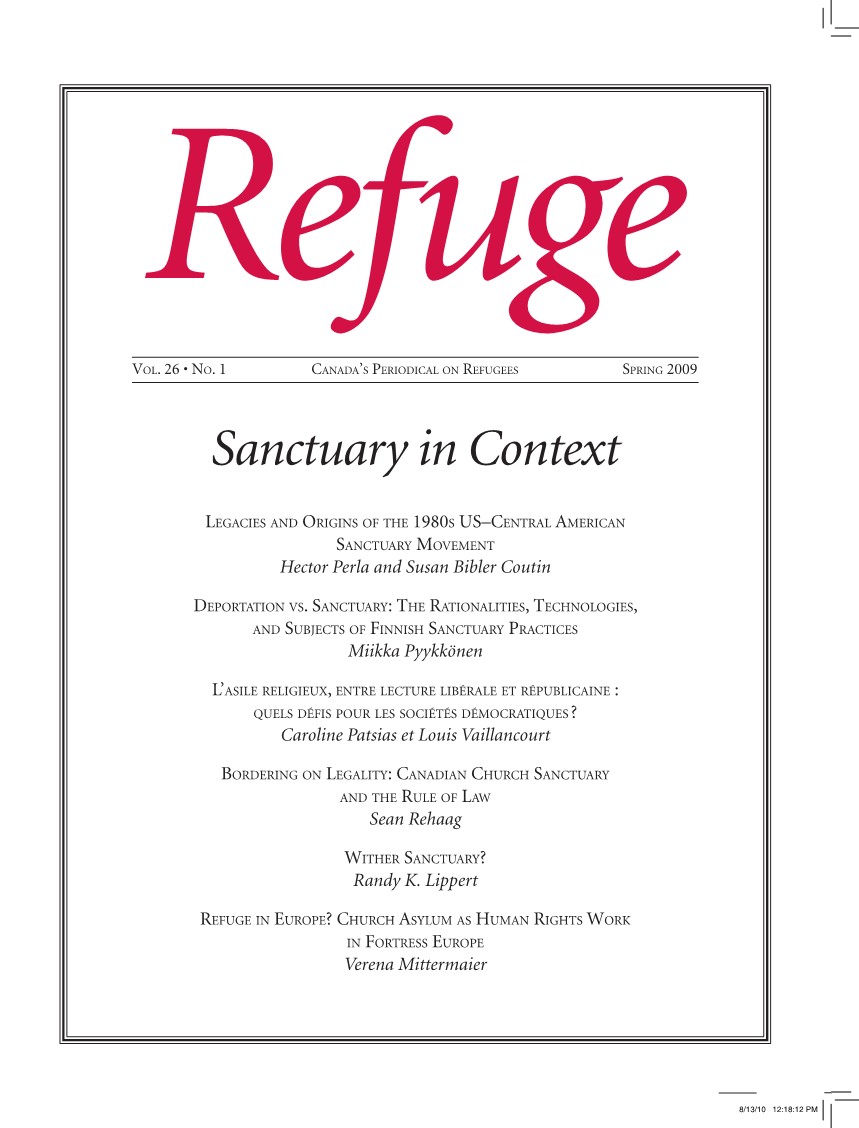Unwelcome Guests: The Detention of Refugees in Turkey's "Foreigners' Guesthouses"'
DOI:
https://doi.org/10.25071/1920-7336.30609Keywords:
Turkey, irregular migration, foreigner's guesthouses, detention centers, procedural rights, human rightsAbstract
As European countries bordering the Mediterranean have introduced increasingly harsh measures to stem the flow of irregular migration across their frontiers, Turkey has become one of the main crossroads for flows of migration from Africa, Asia, and the Middle East into Europe. At the same time, as part of Turkey’s accession process, the European Union has stepped up pressure on Turkey to prevent the movement of migrants, asylum seekers, and refugees into Europe. As a result of Turkey’s efforts to limit irregular migration flows, thousands of foreign nationals without travel documents, refugees among them, are detained while attempting to either enter or exit the country illegally. They are primarily held in detention centres, which are officially referred to as “foreigners’ guesthouses.” Turkey’s Ministry of Interior (MOI) severely limits access to detainees in these facilities by international and domestic NGOs and advocates. Helsinki Citizens’ Assembly Turkey (HCA), a leading human rights NGO based in Istanbul, has provided legal aid to refugees since 2004 through its Refugee Advocacy and Support Program. Based on interviews conducted by HCA with forty refugees from seventeen countries, this report examines refugees’ access to procedural rights in detention, as well as conditions in “foreigners’ guesthouses.” It identifies gaps between reported practice and standards of treatment set forth in Turkish legislation and international guidelines on detention.
Metrics
Downloads
Published
How to Cite
Issue
Section
License
Copyright (c) 2010 Rachel Levitan, Esra Kaytaz, Oktay Durukan

This work is licensed under a Creative Commons Attribution-NonCommercial 4.0 International License.
Refuge authors retain the copyright over their work, and license it to the general public under the Creative Commons Attribution-Non Commercial License International (CC BY-NC 4.0). This license allows for non-commercial use, reproduction and adaption of the material in any medium or format, with proper attribution. For general information on Creative Commons licences, visit the Creative Commons site. For the CC BY-NC 4.0 license, review the human readable summary.







